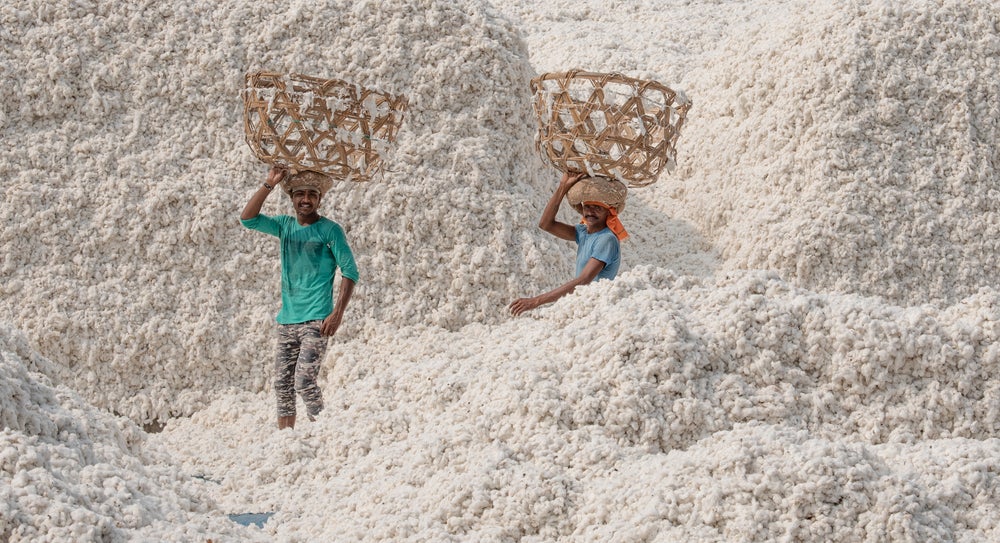Hugo Boss has embarked on a significant strategic partnership with the Grameena Vikas Kendram Society for Rural Development (GVK Society), a grassroots non-profit organization in India. This collaboration is centered on the creation of regenerative, circular, and socially inclusive agricultural value chains aimed at maximizing value for smallholder and indigenous farming communities. The primary objective is to transform an expansive area of 5,250 acres—equivalent to around 3,000 soccer fields—into regenerative food and cotton landscapes, focusing on the empowerment of smallholder farmers, development of infrastructure, and enhancement of capacities within these communities.
A crucial aspect of this initiative is the training of 1,500 farmers, where approximately 900 of the participants will be women. Hugo Boss emphasizes that the project is not just about economic upliftment, but also aims to address environmental concerns. The initiative aspires to mitigate climate change and enhance biodiversity in the region, showcasing a dual focus on socio-economic and ecological benefits. By engaging with local farmers, the initiative aims to foster resilience and long-term prosperity while addressing urgent environmental challenges.
The environmental impact of the project is expected to be substantial, with an anticipated sequestration of around 31,000 tons of CO2 within three years. Moreover, the initiative plans to avert the use of 1,000 tons of synthetic fertilizers and genetically modified organisms (GMOs), along with 2,000 kilograms of pesticides and herbicides. These measures align with the global goals of reducing the fashion industry’s environmental footprint while simultaneously improving the livelihoods of local communities involved in farming activities.
Daniel Grieder, the CEO of Hugo Boss and managing director of the Hugo Boss Foundation, expressed enthusiasm for the partnership, emphasizing the commitment to innovative material sourcing methods which are pivotal for sustainability in the fashion sector. The initiative also supports Hugo Boss’s broader commitment of sourcing 100% of its natural materials through regenerative farming or closed-loop recycling by the year 2030.
From the perspective of the GVK Society, the support from Hugo Boss represents a significant enhancement to their ongoing efforts to create healthier and more balanced soil. Aneel Kumar Ambavaram, the chief functionary at GVK Society, noted that the funding provided by the Hugo Boss Foundation would enable them to further their regenerative agricultural model. Additionally, the project aims to diversify beyond cotton to include other commercially viable crops like coffee, pepper, millets, turmeric, and ginger, thereby accessing international markets and enhancing the economic resilience of farmers.
This partnership and its objectives are part of a broader initiative launched by the Hugo Boss Foundation in 2023, aimed at promoting climate and environmental protection on a global scale, under the slogan “Bold for the Planet.” Despite recent challenges in meeting sales expectations, Hugo Boss remains committed to tightening costs to boost profits and drive initiatives that support sustainable practices. Alongside their philanthropic activities, the company has allocated €500,000 towards the regenerative cotton project in India, marking a clear commitment to social and environmental responsibility within its operational strategies.

